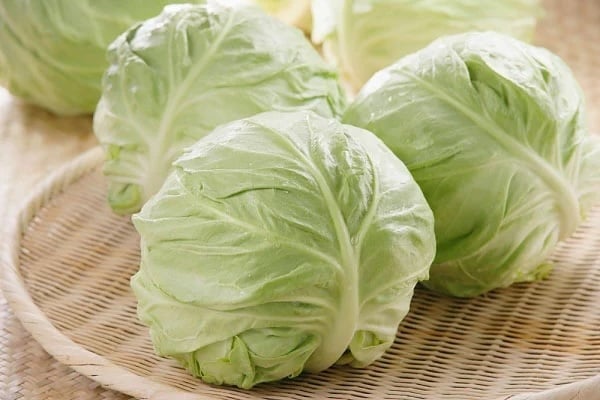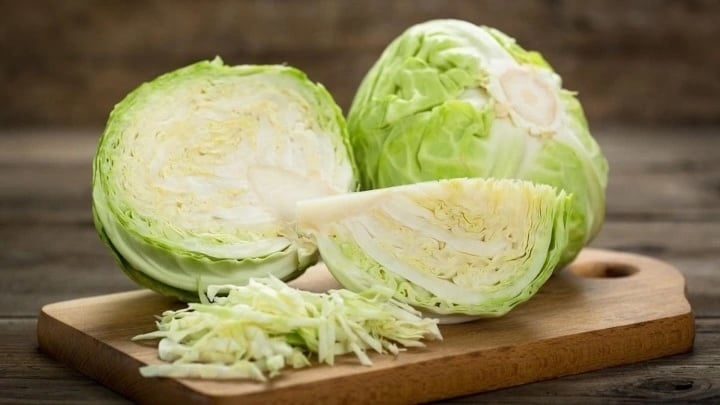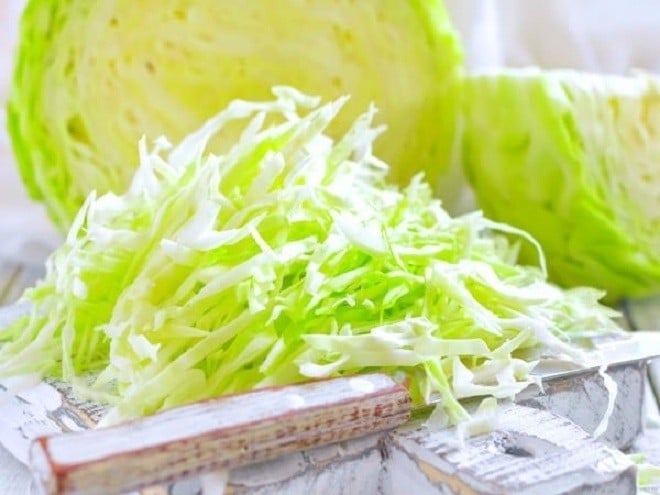Cabbage, also known as ‘bắp sú’ in Vietnamese, is a vegetable packed with essential nutrients. Just one cup (approx. 90g) of raw cabbage can provide 36% of your daily vitamin C needs and 56% of your vitamin K requirements. It is also an excellent source of dietary fiber, folate, potassium, magnesium, and vitamins A and K. This vegetable is not only easily accessible but also offers numerous health benefits, making it a perfect choice for everyday meals.
According to reputable health sources WebMD and Healthline, cabbage is not just a familiar vegetable in daily meals but also brings significant health benefits.
Reduces Inflammation and Prevents Chronic Diseases
Cabbage contains Sulforaphane, kaempferol, and powerful antioxidants that help reduce inflammation. A 2014 study showed that consuming large amounts of cruciferous vegetables like cabbage can reduce inflammation markers in the blood, thereby protecting the body from chronic diseases such as cancer, heart disease, diabetes, and Alzheimer’s. Cabbage also aids digestion and heals stomach ulcers.

Cabbage contains Sulforaphane and kaempferol, potent antioxidants that combat inflammation.
Boosts Cardiovascular Health
Cabbage boasts 36 types of anthocyanins, compounds proven to reduce the risk of heart disease. A 2013 study involving 93,600 participants found that eating anthocyanin-rich foods could lower the risk of heart attacks. Another analysis of 15 studies concluded that increased anthocyanin intake reduced the risk of death from heart disease.
Lowers Blood Lipids
Increasing anthocyanin intake in your diet may help lower blood pressure and reduce bad cholesterol levels. The soluble fiber and plant sterols in cabbage have similar effects. Soluble fiber binds to cholesterol in the intestine, preventing its absorption into the bloodstream, while phytosterols, plant sterols structurally similar to cholesterol, block cholesterol absorption in the digestive tract. Cabbage also helps prevent the oxidation of bad cholesterol, a factor associated with atherosclerosis.

Anthocyanins in cabbage help lower blood pressure and improve cholesterol levels.
Cancer Prevention
Several studies have indicated that cabbage may help prevent certain types of cancer. With its antioxidant and anti-inflammatory properties, cabbage also contains glucosinolate, a sulfur compound that the body can metabolize into cancer-fighting substances.
Kidney Health

Nutritionist Jana Greene Hand endorses cabbage for its kidney-health benefits.
With these remarkable benefits, cabbage deserves a place in every family’s daily diet.
































